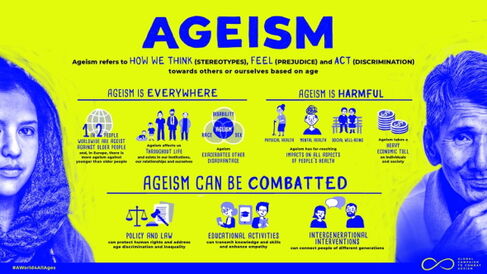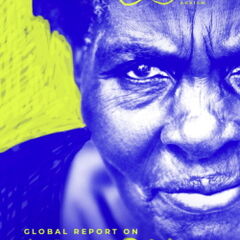
Earlier this year, our PhD student, Laura Campo Tena, contributed to a World Health Organization (WHO)'s international report on ageism. The Global Report on Ageism “outlines a framework for action to reduce ageism including specific recommendations for different actors (e.g. government, UN agencies, civil society organizations, private sector). It brings together the best available evidence on the nature and magnitude of ageism, its determinants and its impact”.
The Report highlights how ageism leads to poorer health, social isolation and earlier deaths, while costing economies billions. It calls for urgent action to implement effective anti-ageism strategies, including policies, laws and educational activities.
The pandemic revealed how widespread ageism is, with age being used as the sole criterion for access to medical care. “As countries seek to recover and rebuild from the pandemic, we cannot let age-based stereotypes, prejudice and discrimination limit opportunities to secure the health, well-being and dignity of people everywhere,” said Dr Tedros Adhanom Ghebreyesus, WHO Director-General. “This report outlines the nature and scale of the problem but also offers solutions in the form of evidence-based interventions to end ageism at all stages.”
Rapid reviews and general research support were provided by Laura Campo Tena on campaigns to reduce ageism against younger people, COVID-19 and ageism, the impact of ageism on the well-being of older people and strategies to mitigate the impact of ageism. Additional contributions were provided by another Cambridge PhD student, Gesa Sophia Borgeest, on the intersections between ageism and other “-isms”.
A further connection to the VRC is that one of the lead authors on the Report is Dr Christopher Mikton, who was one of the co-initiators of the EBLS Study.

